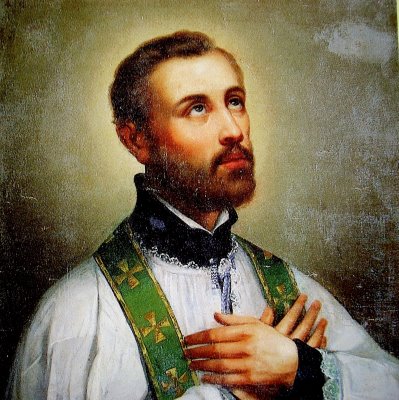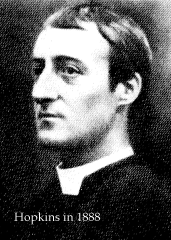Last week we began looking at prayer from an Ignatian perspective. The point of departure was an article from Ignatian Spirituality, “Why Do We Pray?” by Jesuit Father William A. Barry, S.J. Father Barry begins by pointing out that sometimes we pray for utilitarian reasons. This is normal, scriptural and even liturgical. WE pray the “prayer of the Faithful” (“Intercessions”) at Mass each day. Nevertheless, Father Barry asks whether there is something more at work.
First, Father Barry says that prayer has to do with “our deepest desires.”
Prayer is a conscious relationship with God. Just as we spend time with friends because we love them and care for them, we spend time in prayer because we love God and want to spend time with God. We were each created and born “out of love.” We are drawn by a desire for “we know not what,” for union with an ultimate Mystery, who alone can satisfy our deepest longing. (Sounds almost like St. Augustine doesn’t it? Imagine - Jesuits referring to Augustinian spirituality. It’s probably going to snow now).
 That desire, we can say, is the Holy Spirit of God dwelling in our hearts, drawing us to the perfect fulfillment for which we were created—namely, community with the Trinity. That desire draws us toward a more and more intimate union with God.
That desire, we can say, is the Holy Spirit of God dwelling in our hearts, drawing us to the perfect fulfillment for which we were created—namely, community with the Trinity. That desire draws us toward a more and more intimate union with God.
At our deepest level, we pray because we are drawn by a bond of love. We pray because we have been create to love others, and not just for utilitarian purposes. If prayer has beneficial effects—and I believe that it does—that is because prayer corresponds to this deepest reality. When we are in tune with God, we cannot help but experience deep well-being. Ignatius of Loyola spoke of consolation as a sign of a person’s being in tune with God’s intention. But in the final analysis, the lover does not spend time with the Beloved because of the consolation; the lover just wants to be with the Beloved.

Father Barry also mentions another reason for prayer and that is “Thanks and Praise.” When someone gives us a gift, it is only natural to express some type of gratefulness to that person. Thus we have an innate desire to “praise and thank God because of his great kindness and mercy. In contemplating Christ, we discover that God’s love is not only creative but also overwhelmingly self-sacrificing. Jesus loved us even as we nailed him to the cross.”

If we allow the desire for “we know not what” to draw us more and more into a relationship of mutual love with God, then we will, gradually take as our own that wonderful prayer so dear to St. Francis Xavier that begins “O Deus, ego amo te, nec amo te ut salves me” (“O God, I love you, and not because I hope for heaven thereby.”
Gerard Manley Hopkins translated this prayer as follows:
I love thee, God, I love thee - not out of hope for heaven for me
Nor fearing not to love and be in the everlasting burning.
Thou, my Jesus, after me didst reach thine arms out dying,
For my sake sufferedst nails and lance, Mocked and marred countenance,
Sorrows passing number, sweat and care and cumber,
Yea and death, and this for me. And thou couldst see me sinning:
Then I, why should not I love thee, Jesu so much in love with me?
Not for heaven’s sake, not to be out of hell by loving thee;
Not for any gains I see; but just the way that thou didst me
I do love and will love thee. What must I love thee, Lord, for then?
For being my king and God. Amen.
